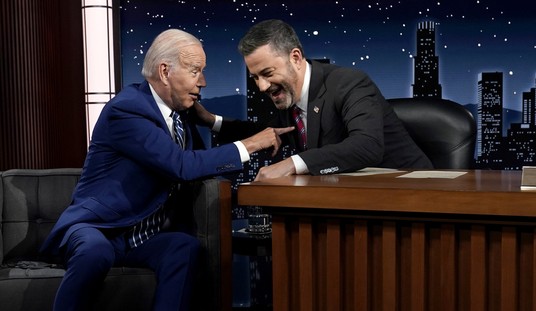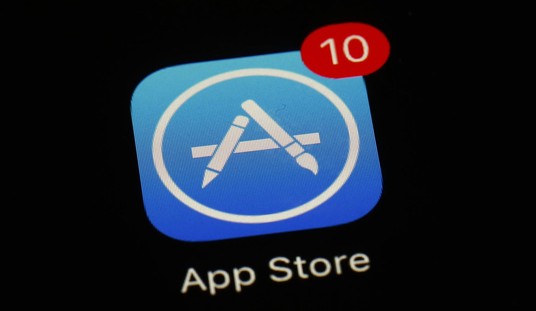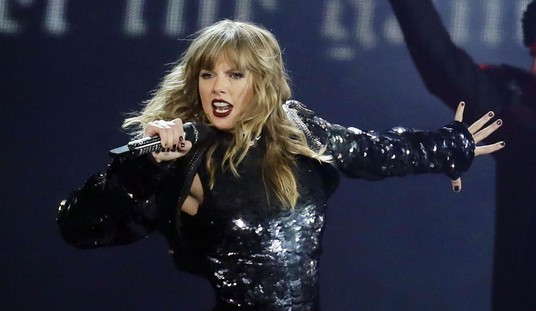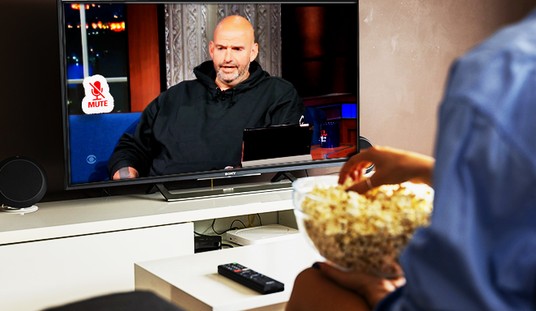Maybe they should be shocked. Black voters usually get ignored by Republican presidential candidates and taken for granted by Democratic presidential candidates. This time, Politico reports, Donald Trump’s campaign has a strategy to spend more heavily on media aimed at African-American voters, and think they have a winning message to give them.
Well, perhaps not a winning message so much as a not losing 90%+ of the vote message:
The president’s reelection campaign has spent $1 million in an effort to make inroads with black voters, and more is coming, according to a person with direct knowledge of the planning. The initiative, dubbed “Black Voices” by the campaign, so far has included ads in black-run newspapers and on radio stations, volunteer training seminars, and a kickoff event hosted by Trump in Atlanta last month.
The Trump ads tout low unemployment among African Americans, Trump’s support for historically black colleges and universities, and the White House-backed criminal reform legislation that passed earlier this year.
The spots, which encourage voters to sign up for Trump 2020 updates by texting “Woke” to a campaign phone number, are concentrated in big cities located in battleground states, including Philadelphia, Detroit and Atlanta.
Trump beat expectations a little bit even in 2016 by scoring 8% of the black vote without much effort to reach out to that demographic. That was a surprising improvement over Mitt Romney four years earlier, who of course ran against the first African-American president and only scored 6% in this demo. Hillary Clinton won 89%, down from Obama’s 93%, even though she appeared to pay more attention to that demo than, say, Wisconsin.
Given that Trump did better than expected without a specific strategy for success, would a more concerted effort pay off the next time? It depends on how one defines success, of course. No one thinks that a Republican candidate can make this demographic competitive in the normal sense within one election cycle. Even Team Trump concedes that’s outside the scope of their effort. All they want to do is be more competitive — say, by reaching double digits in 2020:
If Trump can nudge his way into double digits among black voters and potentially into the low teens, it would eat away at Democratic margins in key swing states and possibly alter the outcome in a close election.
Florida is a case study in how a small shift in the black vote can make a big difference in a key battleground. According to exit polls, black voters made up 14 percent of the electorate in Florida in 2016, and Trump won just 8 percent of them. Had Trump received 12 percent, it would have netted him more than 50,000 votes, roughly half of his total margin of victory in the state.
This strategy makes a lot of sense, at least in theory. Trump only won Wisconsin and Michigan by slender margins, and Pennsylvania was nearly as close. If he can create a shift of a few percentage points in Detroit and Philadelphia, his position in those two key states becomes much stronger — or at the very least will force Democrats to spend more in response.
Would the Team Trump ad strategy work in practice to achieve even that modest success, though? Well, it certainly can’t hurt. It’s a step beyond what most GOP campaigns do, especially this far out from the election. The problem with campaigns like this is that they’re usually based on either (a) a somewhat generic overall message strategy, and/or (b) what a campaign thinks black voters want to hear. The issue for the Republican Party and for Trump is that they haven’t been part of these communities or engaged in serious and extensive dialogue to understand their specific and critical concerns and goals. Economics is part of that, of course, so the achievements being highlighted will be meaningful, but without direct and sustained engagement, it’s going to sound a lot like … an ad campaign.
As long as the campaign understands the limits of this approach, though, why not? At least it shows that the Trump campaign is aware of African-American voters, which is an improvement over the GOP’s usual efforts. If they can use this as a launching pad for more regular and granular engagement, it might actually force Democrats to take these voters seriously, too.








Join the conversation as a VIP Member